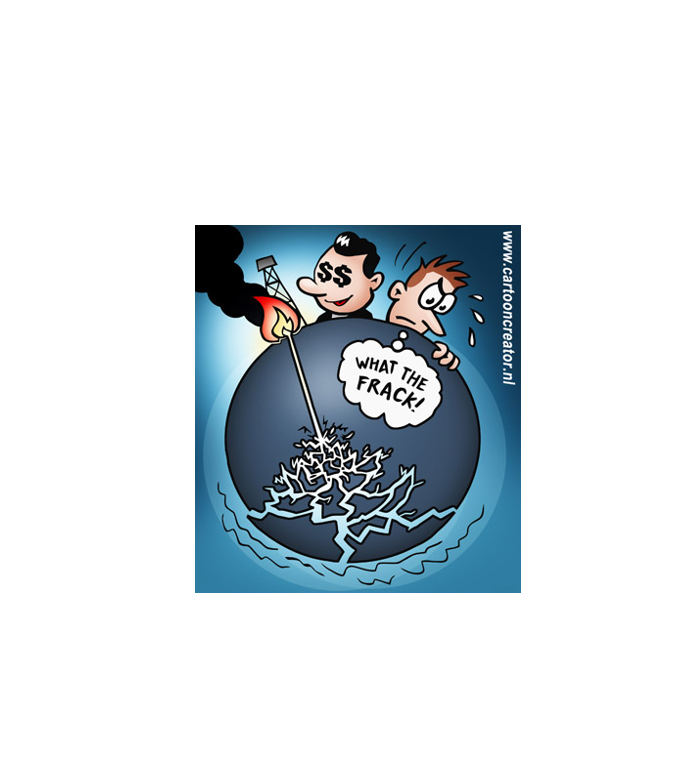Several Canadian communities in the province of British Columbia (BC) have experienced a significant increase in the number of earthquakes in recent years.1 As they watch a once infrequent geological phenomenon become a regular occurrence, British Columbian residents are making a connection between the increase in earthquake activity and the rapid development in the number of sites utilizing a controversial method of resource extraction: hydraulic fracturing, or fracking.2 Despite the protests from surrounding communities, BC has experienced a rapid increase in fracking projects.3 As it stands today, “most of BC’s energy wealth is extracted through hydraulic fracturing”; But what may prove to be most shocking to the locals is the risk that comes with the seismic events they don’t feel.4
Hydraulic fracturing, or fracking, is a drilling method that is most commonly used to extract natural gas from low permeability shale rock formations.5 The fracking process requires the injection of high-pressure fluids into underground shale formations to create fractures in the rock and increase permeability to allow for the extraction of previously inaccessible oil and gas. The fracking fluids and saltwater that are extracted along with the natural gas are referred to as wastewater, that is often disposed the subsurface by injection into deep wells.6 Hydraulic fracturing is a controversial topic across the globe due to concerns surrounding the environmental impacts associated with fracking practices; these concerns have spurred several countries to temporarily ban the practice entirely.7

A common concern voiced by fracking critics and local residents alike is the increase in earthquake activity observed at several hydraulic fracturing sites in BC in recent years.8 It is important to note that the process of fracking causes small and intentionally induced earthquakes at the targeted shale rocks, but the major concern is directed at the earthquakes that are larger in magnitude, unintended, and linked to previous hydraulic fracturing efforts. The disposal of wastewater through subsurface injection has also been linked to larger magnitude earthquakes than fracking alone, though most are still too weak to be felt.9 Most fracking sites located in BC are required to dispose of wastewater through deep injection. However, pre-existing faults that can be activated through wastewater injection methods are often unmapped, raising the potential for unanticipated induced earthquakes, and making wastewater injection a risky process.10
British Columbia is home to four large shale gas basins and is considered one of the world’s largest exploitable reserves of recoverable unconventional gas.11 The Site C Dam project is located near one of these shale basins, and has experienced a large increase in the number of earthquakes for nearly a decade.12 While these are mostly small earthquakes (less than magnitude 3), a 4.5 magnitude earthquake occurred in 2018 that forced workers to evacuate the Site C Dam project. These earthquakes have been attributed to an increase in the number of hydraulic fracturing operations in the surrounding areas.13 The region, not previously known for having many earthquakes until fracking arrived, has been referred to as Canada’s fracking earthquake capital.14

“Between 2017 and 2018 alone, there were 6,551 earthquakes in the region equal to or greater in magnitude than 0.8… [T]here were more than 4,100 other very small magnitude seismic events in the same area that registered under 0.8 magnitude.”15
Documents obtained via a Freedom of Information Act (FOIA) request revealed concerns that the numerous fracking and wastewater disposal operations in BC triggered several earthquakes that are dangerously close to existing critical publicly funded infrastructure such as the Site C Dam project, Peace Canyon Dam, and the WAC Bennett Dam.16 The FOIA documents also revealed that “should a strong enough earthquake be triggered near the Peace Canyon Dam it could set in motion events that brought the concrete and steel structure down”, and noted similar concerns regarding the vulnerability of the WAC Bennet Dam.17 Damage to either dam would wreak havoc on the power grid and surrounding communities, as BC Hydro and Power Authority, a Canadian electric utility, estimates that the water in WAC Bennet Dam accounts for a quarter of all power generated by BC Hydro.18
Locations of hydraulic fracturing and wastewater sites in the region also coincide with the most geologically sensitive areas of BC: along mapped, existing fault systems.19 Numerous earthquakes are occurring in a zone already riddled with underlying faults that “can easily become critically stressed with just small increases… during fracking operations.” These dormant fault lines were formed by geological activity over thousands, or event millions of years, but it only takes one small seismic event to trigger an even larger earthquake that geologists previously estimated to occur at a much later time.20 These existing fault lines add insult to injury in terms of the risk posed by fracking, making an already high-risk operation worse.
Despite reassurances in BC Hydro’s quarterly reports, there are other geotechnical problems that are suspected to be attributable to regional fracking efforts, including decreased structural stability of existing infrastructure and increasing ground instability at the Site C Dam.21 Former BC Hydro president and CEO Mark Eliesen questions whether the Site C Dam project should have been approved for construction by government officials, estimating that the original taxpayer-funded $6.6 billion (CAD) cost estimate will almost double to more than $12 billion before the project reaches completion. Construction on the dam project and nearby fracking operations have recently come to a halt, while concerns for similar publicly-funded dam projects have emerged amid the increase in regional seismic activity.22

Despite the major risks posed to surrounding public infrastructure, companies continue to show interest in pursuing further hydraulic fracturing projects in the region.23 Natural gas production in BC is projected to increase by 87% over the next 20 years.24 This projected growth in future operations only serves to exacerbate the seismic risk of activating dormant faults that will continue to decrease the stability of public infrastructure at the taxpayer’s expense. Though government officials continue to approve permit requests made by companies like BC Hydro and Power Authority, Canadians remain hopeful that their voices will be heard as they continue to adapt to their changing environment alongside protesting efforts.25
- Nikiforuk A. Thousands of Quakes, Tied to Fracking, Keep Shaking the Site C Dam Region. 2020 Aug 13 Retrieved 2020 Sep 3. https://thetyee.ca/News/2020/08/13/Quakes-Fracking-Site-C-Dam-Region/ ↵
- Cecco L. Canada: indigenous anti-pipeline protesters call police presence ‘act of war’. The Guardian. 2019 Jan 7 Retrieved 2020 Oct 28. https://www.theguardian.com/world/2019/jan/07/canada-indigenous-anti-pipeline-protesters ↵
- Cecco L. Canada: indigenous anti-pipeline protesters call police presence ‘act of war’. The Guardian. 2019 Jan 7 Retrieved 2020 Oct 28. https://www.theguardian.com/world/2019/jan/07/canada-indigenous-anti-pipeline-protesters ↵
- Trumpener B. ‘Highly stressed’: Parts of BC’s gas fields may be more prone to fracking quakes, scientists finding | CBC News. CBC News. 2019 Nov 4 Retrieved 2020 Oct 28. https://www.cbc.ca/news/canada/british-columbia/highly-stressed-parts-of-b-c-s-gas-fields-may-be-more-prone-to-fracking-quakes-scientists-finding-1.5347081 ↵
- Hadley B, Rennell T, Austin D. Fracking: risks and rewards. London, United Kingdom: Iskaboo Publishing Ltd. Retrieved September 01, 2020 from http://eds.b.ebscohost.com/eds/ebookviewer/ebook/ZTAwMHhuYV9fMTAwNDk3MF9fQU41?sid=0bdaf5a2-d035-472f-98f8-908c5fcf4da0@pdc-v-sessmgr04&vid=0&format=EB&rid=1, 8. ↵
- Hadley B, Rennell T, Austin D. Fracking: risks and rewards. London, United Kingdom: Iskaboo Publishing Ltd. Retrieved September 01, 2020 from http://eds.b.ebscohost.com/eds/ebookviewer/ebook/ZTAwMHhuYV9fMTAwNDk3MF9fQU41?sid=0bdaf5a2-d035-472f-98f8-908c5fcf4da0@pdc-v-sessmgr04&vid=0&format=EB&rid=1, 17. ↵
- Silverstein K. Will The UK’s Temporary Ban On Natural Gas Fracking Impact U.S. Policy? Forbes. 2019 Nov 10 Retrieved 2020 Oct 25 https://www.forbes.com/sites/kensilverstein/2019/11/17/will-the-uks-temporary-ban-on-natural-gas-fracking-impact-us-policy/ ↵
- Nikiforuk A. Thousands of Quakes, Tied to Fracking, Keep Shaking the Site C Dam Region. 2020 Aug 13 Retrieved 2020 Sep 3. https://thetyee.ca/News/2020/08/13/Quakes-Fracking-Site-C-Dam-Region/ ↵
- U.S. Geological Survey. Does the production of oil and gas from shales cause earthquakes? If so, how are the earthquakes related to these operations? 2018 Retrieved 2020 Oct 25. https://www.usgs.gov/faqs/does-production-oil-and-gas-shales-cause-earthquakes-if-so-how-are-earthquakes-related-these?qt-news_science_products=0 ↵
- Wisen, J., Chesnaux, R., Wendling, G., Werring, J., Barbecot, F., & Baudron, P. 2019 June 07. Assessing the potential of cross-contamination from oil and gas hydraulic fracturing: A case study in northeastern British Columbia, Canada. Retrieved September 01, 2020, from https://www.sciencedirect.com/science/article/pii/S0301479719307662, 277. ↵
- Wisen, J., Chesnaux, R., Wendling, G., Werring, J., Barbecot, F., & Baudron, P. 2019 June 07. Assessing the potential of cross-contamination from oil and gas hydraulic fracturing: A case study in northeastern British Columbia, Canada. Retrieved September 01, 2020, from https://www.sciencedirect.com/science/article/pii/S0301479719307662, 276. ↵
- Nikiforuk A. Thousands of Quakes, Tied to Fracking, Keep Shaking the Site C Dam Region. 2020 Aug 13 Retrieved 2020 Sep 3. https://thetyee.ca/News/2020/08/13/Quakes-Fracking-Site-C-Dam-Region/ ↵
- Cox S. Don’t blame COVID-19 for new Site C dam cost overruns and delays, energy experts say | The Narwhal. (2020, July 31). Retrieved October 09, 2020, from https://thenarwhal.ca/site-c-dam-bc-hydro-covid-cost-overruns/ ↵
- Parfitt B. A Big Fracking Mess: As Site C dam construction bogs down in geotechnical problems, thousands of earthquakes triggered by fracking operations occur nearby | Policy Note. 2020 August 12. Retrieved October 09, 2020, from https://www.policynote.ca/big-fracking-mess/ ↵
- Parfitt B. A Big Fracking Mess: As Site C dam construction bogs down in geotechnical problems, thousands of earthquakes triggered by fracking operations occur nearby | Policy Note. 2020 August 12. Retrieved October 09, 2020, from https://www.policynote.ca/big-fracking-mess/ ↵
- Nikiforuk A. Thousands of Quakes, Tied to Fracking, Keep Shaking the Site C Dam Region. 2020 Aug 13 Retrieved 2020 Sep 3. https://thetyee.ca/News/2020/08/13/Quakes-Fracking-Site-C-Dam-Region/ ↵
- Parfitt B. A Big Fracking Mess: As Site C Dam construction bogs down in geotechnical problems, thousands of earthquakes triggered by fracking operations occur nearby | Policy Note. 2020 August 12. Retrieved October 09, 2020, from https://www.policynote.ca/big-fracking-mess/ ↵
- BC Hydro and Power Authority. Bennett Dam at 50: ‘It was unbelievable to take that on’. 2017 Sep 1. Retrieved 2020 Oct 26. https://www.bchydro.com/news/conservation/2017/bennett-dam-50.html ↵
- Nikiforuk A. Thousands of Quakes, Tied to Fracking, Keep Shaking the Site C Dam Region. 2020 Aug 13. Retrieved 2020 Sep 3. https://thetyee.ca/News/2020/08/13/Quakes-Fracking-Site-C-Dam-Region/ ↵
- Trumpener B. ‘Highly stressed’: Parts of BC gas fields may be more prone to fracking quakes, scientists finding | CBC News. CBC News. 2019 Nov 4. Retrieved 2020 Oct 28. https://www.cbc.ca/news/canada/british-columbia/highly-stressed-parts-of-b-c-s-gas-fields-may-be-more-prone-to-fracking-quakes-scientists-finding-1.5347081 ↵
- James F. 2020. RE: British Columbia Utilities Commission (BCU Cor Commission), British Columbia Hydro and Power Authority (BC Hydro), Site C Clean Energy Project, PUBLIC Quarterly Progress Report No.17– July to September 2019 (Report). BC Hydro and Power Authority. 15 Jan 2020. Retrieved 2020 Nov 7. https://www.sitecproject.com/sites/default/files/2020_01_15_BCH_Site_C_RPT_17_PUB.pdf ↵
- Cox S. Don’t blame COVID-19 for new Site C Dam cost overruns and delays, energy experts say | The Narwhal. (2020, July 31). Retrieved October 09, 2020, from https://thenarwhal.ca/site-c-dam-bc-hydro-covid-cost-overruns/ ↵
- Trumpener B. ‘Highly stressed’: Parts of BC’s gas fields may be more prone to fracking quakes, scientists finding | CBC News. CBC News. 2019 Nov 4. Retrieved 2020 Oct 28. https://www.cbc.ca/news/canada/british-columbia/highly-stressed-parts-of-b-c-s-gas-fields-may-be-more-prone-to-fracking-quakes-scientists-finding-1.5347081 ↵
- Hughes D. BC’s Carbon Conundrum: Why LNG exports doom emissions-reduction targets and compromise Canada’s long-term energy security. 2020 Jul. Retrieved 2020 Oct 27. https://www.policyalternatives.ca/sites/default/files/uploads/publications/BC%20Office/2020/07/ccpa-bc_BCs-Carbon-Conundrum_full.pdf, 17. ↵
- Cecco L. Canada: indigenous anti-pipeline protesters call police presence ‘act of war’. The Guardian. 2019 Jan 7 Retrieved 2020 Oct 28. https://www.theguardian.com/world/2019/jan/07/canada-indigenous-anti-pipeline-protesters ↵



24 comments
Joshua Zemanski
This was a great informative article, I knew fracking was bad for the environment but it causes that big on an impact and causing that many earthquakes is crazy. Within a year it caused 6,551 even if it is just small magnitude for one thing to cause that many is unbelievable. I can imagine the workers trusting their safety working there either knowing a big magnitude earthquake can happen at anytime.
Yanelle Nicholson
This article was very informative. The Canadian government is exploiting not only the earth, but the people that live in these areas affected by the results of fracking. These earthquakes, which had not previously happened, are a result of the unnatural way that resources are being extracted. The environmental effects of the fracking method are a source of many worries, and the Canadian government should prioritize public safety.
Alia Hernandez Daraiseh
This article was extremely interesting, and it highlighted some key issues, that strain from the Canadian government. The safety of the people should come first, and everything in my opinion should calm down for a bit. An earthquake can strike at any moment that can result of people dying. The dam is at stake too, it could be destroyed by an earthquake as well if it is strong enough.
Kanum Parker
There is a lot of problems with fracking nowadays the main one being wealth over health. This article bring to light on how selfish the Canadian government can be. These projects need to be slowed down or put at a halt for awhile for the safety of the people in BC. This is a dangerous thing they are doing because they could have a huge earthquake one day causing many to be injured or even die./
Kanum Parker
There is a lot of problems with fracking nowadays the main one being wealth over health. This article bring to light on how selfish the Canadian government can be. These projects need to be slowed down or put at a halt for awhile for the safety of the people in BC. This is a dangerous thing they are doing because they could have a huge earthquake one day causing many to be injured or even die.
Eliza Merrion
My family is in the oil and gas business, so I have always heard a lot of different opinions about fracking. Your article was very informative and interesting to read. I can tell you put a lot of work and thought into your research and article. This article offered a different perspective on how fracking impacts the environment then I have heard before. I felt your final two paragraphs really summed up your article and the facts that established throughout the article.
Aaron Sandoval
This article was very well done, and very informative. I know some basic information on fracking, and this article did a good job of not only covering the basics but going into more detail on the situation, and the many aftereffects of fracking. The authors did a great job of covering the many controversies revolved around fracking, and the many dangers that it has on a global level.
Alicia Martinez
Fracking can be such a controversial topic in the political arena when discussing environmental safety and certain economies. Prior to reading this article, I had a minimal understanding of fracking is and how it impacts the environment. I think that the environmental problems that we face today are hard to reverse because of how heavily these practices are embedded within society. Yet, I do think that steps can be taken to move away from harmful practices through a gradual change rather than through sudden political action.
Sherisa Orozco
This article is very informative and organized on the topic of fracking. Explaining the danger of fracking and the impact it. It’s shocking to see the people have harmed our planet and risked our environment rather than restoring it. Great topic and very well written and organized. I had a small sense of what fracking was but the article helped me learn more on this topic. Good job on explaining and well organized.
Paula Salinas Gonzalez
I really enjoyed reading this article and learning about fracking. I had heard about it before but didn’t really know how it worked or what it was for. It’s really sad that big companies still would rather put at risk nature and human life just to achieve what they want. I think it is essential for the public to know, especially for those who have a hard time believing in global warming and other environmental problems, that many of the so called “natural disasters” are actually caused by human actions. These disasters are just consequences of our own negligence.